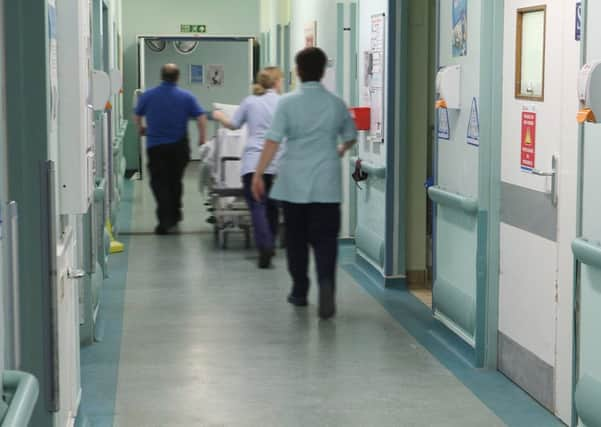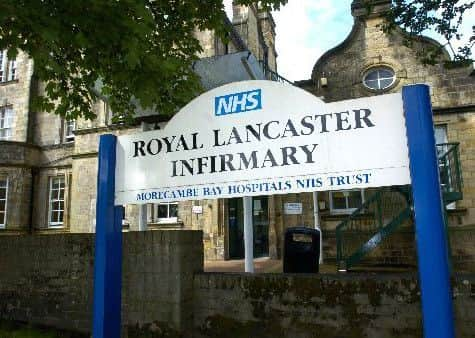One in five across Morecambe Bay not treated on time for cancer


The Royal College of Surgeons says the NHS is struggling to deal with increasing demand for cancer treatments and warns many patients are facing “unacceptable” delays.
NHS targets state that 85 per cent of patients should be treated within 62 days of an urgent GP referral for cancer.
Advertisement
Hide AdAdvertisement
Hide AdBut NHS England data shows that only 82 per cent of patients treated in April waited for less than two months at University Hospitals of Morecambe Bay NHS Trust (UHMBT) – compared to 96.9 per cent three years earlier.


It means 16 people were not treated within the target period. Of those, 10 waited at least 77 days.
By cancer type, the proportion of patients being treated in April within two months of a referral at UHMBT was: Breast cancer: 100%; Lung cancer: 100%; Skin cancer: 84%; Urological cancer, excluding testicular: 64%; Lower gastrointestinal cancer: 72%.
A spokesman for the Royal College of Surgeons said long waiting times may cause cancer patients’ health to deteriorate, making surgery less effective.
Advertisement
Hide AdAdvertisement
Hide AdHe said: “It is utterly unacceptable that only 38 per cent of NHS trusts and foundation trusts are meeting the 62-day standard for referral to treatment for cancer.
“Staff are working as hard as they can to provide timely care, however, demand for cancer treatment is growing and the NHS is struggling to keep up with this.
“The RCS has called for a five-year plan to help hospitals deal with the backlog of patients that are waiting for treatment, including those that require surgery to treat cancer. This plan should include directing some of the money promised to the NHS to increasing the resources and staff needed to treat patients in a timely manner.”
Dr Moira Fraser-Pearce, director of policy and campaigns at Macmillan Cancer Support, said new figures show how short-staffed the NHS is.
Advertisement
Hide AdAdvertisement
Hide AdShe added: “These consistently missed targets for cancer waiting times are indicative of the overstretched NHS workforce, which is struggling to cope faced with increasing patient need and unreasonable workloads.
“People living with cancer cannot wait for the current political turmoil to blow over before more funding for cancer services comes in.
“The Government must act urgently, and prioritise a plan to ensure that the NHS has the money and resource to tackle the workforce crisis.”
A trust spokesman said latest figures now showed 84.4 per centof patients treated waited for less than two months – 15 patients.
Advertisement
Hide AdAdvertisement
Hide AdBreast and lung cancer remained at 100%, while skin cancer was now 89%, urological cancer was now 70.6% and lower gastrointestinal cancer remained at 72%.
Foluke Ajayi, Chief Operating Officer for UHMBT, said: “A total of 95 patients were treated with 15 breaches. With one less breach, we would have exceeded the national standard of 85 per cent.
“Of the 15 patients who were not seen within the target time, seven were treated at other hospitals in Lancashire. Patients are occasionally referred for treatment to a number of specific specialist centres in other parts of Lancashire as part of defined care pathways. Diagnostic tests, where possible, are carried out within UHMBT.
“As a trust, we have taken various steps to improve cancer standards including work to offer all patients on a ‘cancer pathway’ a first appointment within seven days.
Advertisement
Hide AdAdvertisement
Hide Ad“We work extensively with GPs to encourage patients to attend appointments and diagnostic tests when cancer is suspected.
“Our trust has a continuous improvement programme to enhance the experience of patients, to reduce delays, to reassure patients of a ‘clear’ result quickly and to ensure faster treatments for people with a cancer diagnosis.
“Updated ‘patient pathways’ have been implemented across the tumour groups of lung, gynaecology, colorectal, upper GI and prostate cancer and we have introduced diagnostic tests which are done as soon as lung, colorectal or gynaecological cancer is suspected, resulting in shorter waiting times for patients.
“We have also been working with other hospitals in Lancashire to speed up waiting times for patients who receive their treatment outside UHMBT.”